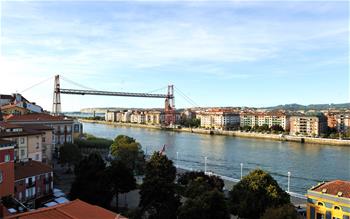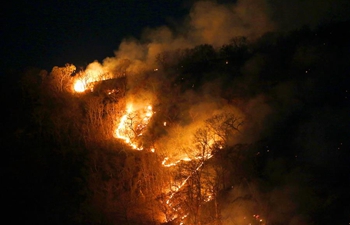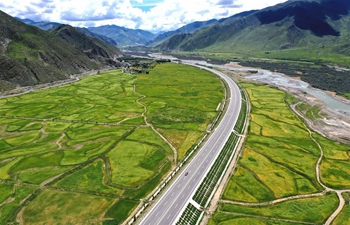LONDON, Aug. 23 (Xinhua) -- Britain's population has reached 66.4 million, with the growth rate at its slowest since 2004, the Office for National Statistics (ONS) said in a new report Friday.
Between mid 2017 and mid 2018 the population grew by just 0.6 percent, with international migration the main driver of population growth.
The ONS report also pointed to a shifting age structure towards later ages, with the number of people in Britain aged 65 and over predicted to grow by 8.2 million, equivalent to the population of London, in 50 years.
"The structure of the UK's population is changing. People living longer and having fewer children means the age structure is shifting towards later ages. The ways in which people live are also changing with cohabiting families the fastest growing family type and more young adults living with their parents," said Sarah Coates from the ONS Center for Ageing and Demography.
Britain's population is projected to surpass 70.1 million by mid-2029 and reach 72.9 million by mid-2041, increases of 5.5 percent and 9.7 percent, respectively compared to the latest population figure. In 1951 Britain's total population was less than 50.3 million.
ONS said England's population continued to grow at a faster rate than the rest of the UK, increasing by 358,000 to 56 million, up 0.6 percent from mid-2017. Northern Ireland's population grew by 11,000 to 1.9 million, also up 0.6 percent. Scotland's population grew by 13,000 to 5.4 million, up 0.2 percent while the population in Wales, grew by 13,000 to 3.1 million, up 0.4 percent.
The report shows the four fastest-growing local authorities are all in London, with the City of London topping the list followed by Tower Hamlets, Camden and Westminster, home to the British government, all recording double-digit population rises.
At the other end of the scale, many of the 23 local authorities with decreasing populations over the last five years are in coastal areas with older populations, said ONS. Ceredigion in Wales had the largest drop, losing 4 percent of its population over the last five years.
The statistics show there are now 19.1 million families in Britain, 8 percent more compared with 2008 when it was 17.7 million.
Births in England and Wales are at lowest recorded since 2005, while the birth rate was the lowest ever recorded.
ONS said for the majority of the 20th century natural change was the main driver of population growth in Britain, with migration a secondary factor. That changed in the 1990s, with net migration increasing in influence to become the main source of population growth since 1998.
Like many other countries, Britain's age structure is shifting towards later ages. By 2050, ONS projects that one in four people in Britain will be aged 65 years and over, an increase from approximately one in five in 2018.













